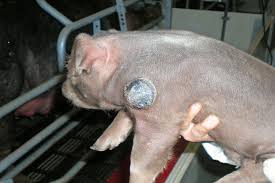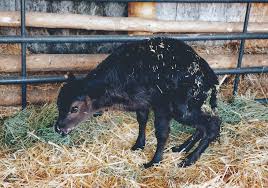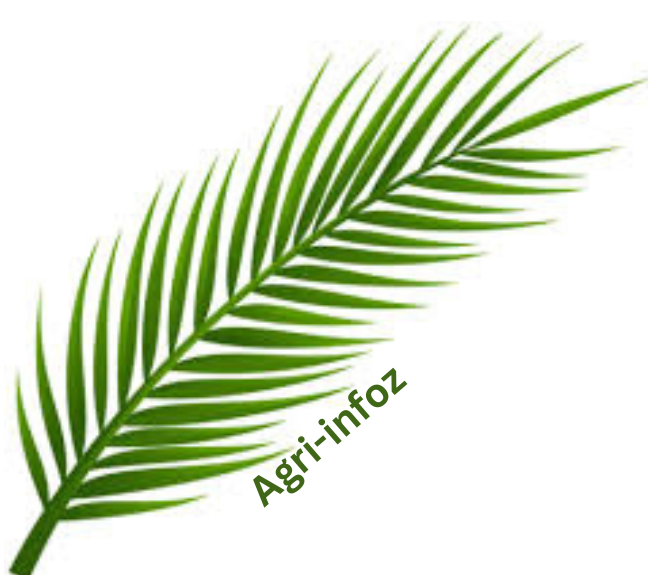


Shedding Light on Genetic Disorders in Farm Animals: Understanding, Managing, and Preventing Risks
In the mosaic of genetic diversity that defines farm animal populations, there lurks a shadow — genetic disorders. These disorders, arising from mutations in the genetic code, pose significant challenges to the health, welfare, and productivity of livestock. Join us as we illuminate the landscape of genetic disorders in farm animals, exploring the underlying causes, management strategies, and preventive measures that safeguard the genetic health of our cherished livestock.
Read more related: Animal Welfare Standards in Farming
Unravelling the Genetic Tapestry: The Origins of Genetic Disorders
Genetic disorders in farm animals originate from mutations in the DNA sequence, disrupting the normal functioning of genes and affecting various physiological processes. These mutations may be inherited from one or both parents or arise spontaneously during the reproductive process. While some genetic disorders have visible phenotypic effects, others may remain hidden until triggered by environmental factors or breeding practices.
Types of Genetic Disorders: From Structural Abnormalities to Metabolic Disorders
Genetic disorders in farm animals encompass a diverse array of conditions, ranging from structural abnormalities such as skeletal deformities and congenital defects to metabolic disorders affecting growth, reproduction, and immune function. Examples include osteochondrosis in pigs, hereditary chondrodysplasia in poultry, and metabolic diseases like bovine leukocyte adhesion deficiency (BLAD) in cattle. Each disorder presents unique challenges and considerations for breeders and veterinarians.
Managing Genetic Disorders: Strategies for Mitigation and Control
Managing genetic disorders in farm animals requires a multifaceted approach that addresses both the underlying genetic causes and the associated health implications. Breeders may implement breeding strategies such as selection against carrier animals, genetic testing, and pedigree analysis to identify and mitigate the risk of transmitting genetic disorders to offspring. Additionally, veterinary interventions, nutritional management, and environmental modifications may help alleviate the clinical symptoms and improve the welfare of affected animals.
Preventing Genetic Disorders: The Role of Genetic Selection and Education
Prevention is often the most effective strategy for addressing genetic disorders in farm animals. By prioritizing genetic selection criteria that favor health, vitality, and resilience, breeders can gradually reduce the prevalence of deleterious alleles within their populations. Education and outreach initiatives play a crucial role in raising awareness about genetic disorders, promoting responsible breeding practices, and empowering stakeholders to make informed decisions that prioritize animal welfare and genetic health.
Collaborative Efforts: Working Towards Genetic Resilience
The mitigation of genetic disorders in farm animals requires collaboration and coordination across the agricultural community. Breed associations, research institutions, veterinary professionals, and industry stakeholders must work together to share knowledge, develop best practices, and implement policies that promote genetic resilience and sustainability. By pooling resources and expertise, we can collectively safeguard the genetic health of farm animal populations and ensure a prosperous future for agriculture.
Conclusion: Illuminating the Path Forward
As we navigate the complex terrain of genetic disorders in farm animals, we are guided by a shared commitment to compassion, stewardship, and scientific inquiry. By shining a light on the genetic landscape, understanding the origins and implications of genetic disorders, and implementing proactive measures to mitigate risks, we can chart a path towards a future where farm animals thrive in health, vitality, and genetic resilience.




 Afrikaans
Afrikaans Albanian
Albanian Amharic
Amharic Arabic
Arabic Armenian
Armenian Azerbaijani
Azerbaijani Basque
Basque Belarusian
Belarusian Bengali
Bengali Bosnian
Bosnian Bulgarian
Bulgarian Catalan
Catalan Cebuano
Cebuano Chichewa
Chichewa Chinese (Simplified)
Chinese (Simplified) Chinese (Traditional)
Chinese (Traditional) Corsican
Corsican Croatian
Croatian Czech
Czech Danish
Danish Dutch
Dutch English
English Esperanto
Esperanto Estonian
Estonian Filipino
Filipino Finnish
Finnish French
French Frisian
Frisian Galician
Galician Georgian
Georgian German
German Greek
Greek Gujarati
Gujarati Haitian Creole
Haitian Creole Hausa
Hausa Hawaiian
Hawaiian Hebrew
Hebrew Hindi
Hindi Hmong
Hmong Hungarian
Hungarian Icelandic
Icelandic Igbo
Igbo Indonesian
Indonesian Irish
Irish Italian
Italian Japanese
Japanese Javanese
Javanese Kannada
Kannada Kazakh
Kazakh Khmer
Khmer Korean
Korean Kurdish (Kurmanji)
Kurdish (Kurmanji) Kyrgyz
Kyrgyz Lao
Lao Latin
Latin Latvian
Latvian Lithuanian
Lithuanian Luxembourgish
Luxembourgish Macedonian
Macedonian Malagasy
Malagasy Malay
Malay Malayalam
Malayalam Maltese
Maltese Maori
Maori Marathi
Marathi Mongolian
Mongolian Myanmar (Burmese)
Myanmar (Burmese) Nepali
Nepali Norwegian
Norwegian Pashto
Pashto Persian
Persian Polish
Polish Portuguese
Portuguese Punjabi
Punjabi Romanian
Romanian Russian
Russian Samoan
Samoan Scottish Gaelic
Scottish Gaelic Serbian
Serbian Sesotho
Sesotho Shona
Shona Sindhi
Sindhi Sinhala
Sinhala Slovak
Slovak Slovenian
Slovenian Somali
Somali Spanish
Spanish Sundanese
Sundanese Swahili
Swahili Swedish
Swedish Tajik
Tajik Tamil
Tamil Telugu
Telugu Thai
Thai Turkish
Turkish Ukrainian
Ukrainian Urdu
Urdu Uzbek
Uzbek Vietnamese
Vietnamese Welsh
Welsh Xhosa
Xhosa Yiddish
Yiddish Yoruba
Yoruba Zulu
Zulu
One thought on “Genetic Disorders in Farm Animals”